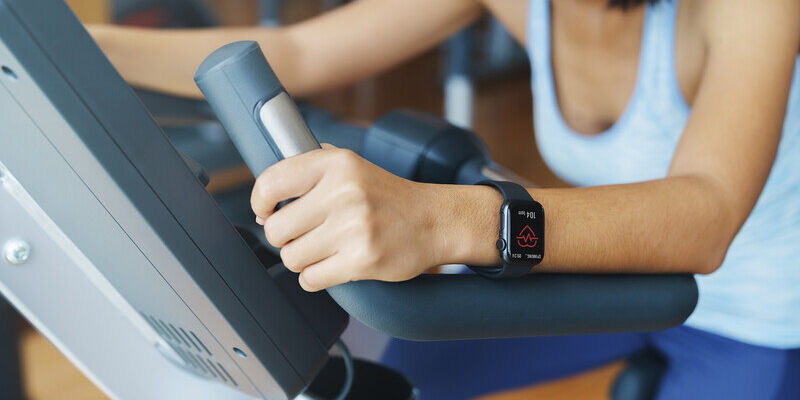It has never been easier to monitor and track your physical activity and other lifestyle habits. Fitness trackers have become a very common accessory. A recent survey by the Pew Research Center found that about 21 percent of adults in the U.S. regularly wear a smart watch or fitness tracker (1). The trick is to actually use them effectively to help you achieve your goals.
There are so many options available today, from the many sophisticated wearable devices or smartwatches on the market to the more basic health tracker app embedded in your smartphone. You can even sync multiple devices together to organize your data in one location. Some habits you may want to track include food and fluid intake, number of steps, minutes and types of exercise, heartrate, and hours of sleep.
Why use a fitness tracker? Accountability. It’s easy to go about your daily routine without consciously noticing what you are doing. Wearable trackers help raise our awareness. Whether we are trying to build new habits or maintain existing ones, we need a way to monitor ourselves and track our progress. Studies show that individuals who monitor themselves consistently are more successful long term in achieving their goals. Unfortunately, research also shows that one third of Americans that buy wearable fitness trackers stop using them within six months (2). Consider these tips for successful tracking.
Tips for Tracking:
- Start by assessing your baseline habits.
- Decide what you want to focus on (ex. Increasing daily steps, increasing frequency of exercise, adding a new fitness activity, specific dietary habits, etc.)
- Set a long-term goal and then break it down into realistic incremental steps.
- Use your device consistently. Remember to keep it charged.
- Make it social. Engage with partner or friend. Participate in a challenge or start your own.
- Celebrate your success!
Caution:
- Don’t rely on estimates of calories burned during exercise as these may not be accurate.
- Apps or devices that calculate your estimated calorie needs use formulas that may not represent your unique needs.
- Do your best to record accurately when entering data. Studies show that individuals tend to underestimate portion sizes of foods eaten and forget to record total intake.
- Be aware of signs of increased anxiety related to being overly consumed by tracking your habits.
References:
- Vogels EA. About one-in-five Americans use a smart watch or fitness tracker. Pew Research Center. https://www.pewresearch.org/fact-tank/2020/01/09/about-one-in-five-americans-use-a-smart-watch-or-fitness-tracker/. Published August 14, 2020. Accessed April 11, 2022.
- Karapanos E, Gouveia R, Hassenzahl M, Forlizzi J. Wellbeing in the making: Peoples’ experience with wearable activity trackers. Psychology of well-being. https://www.ncbi.nlm.nih.gov/pmc/articles/PMC4908170/. Published 2016. Accessed April 11, 2022.
Helaine Krasner, MS, RD, CSOWM, CDN registered dietitian nutritionist who takes great pride in helping our Bariatric and Medical Weight Management patients achieve their health and weight loss goals.

